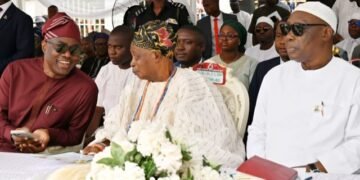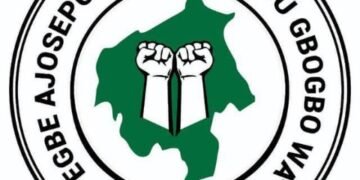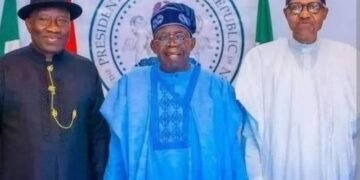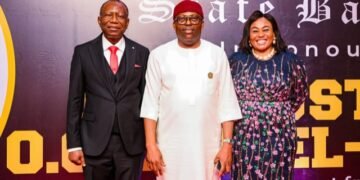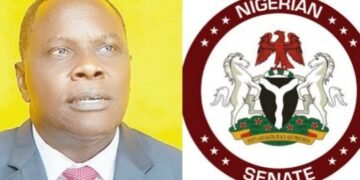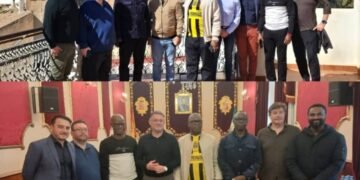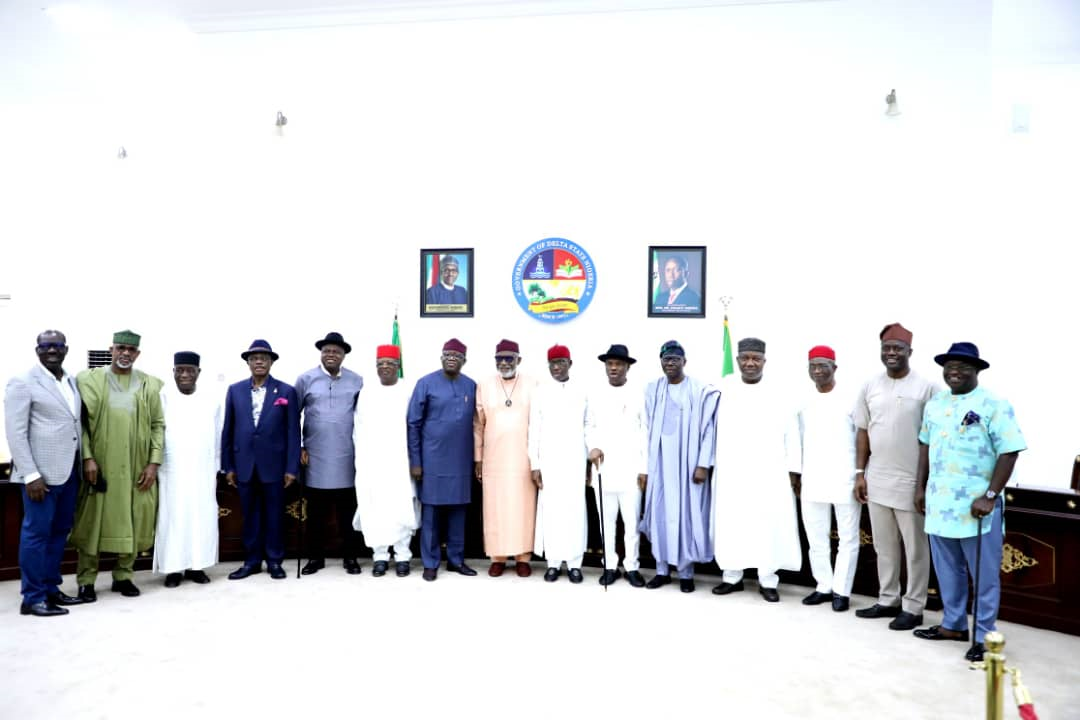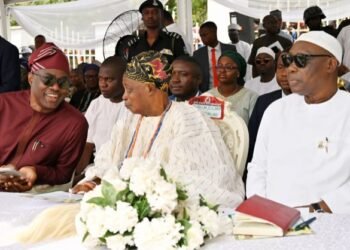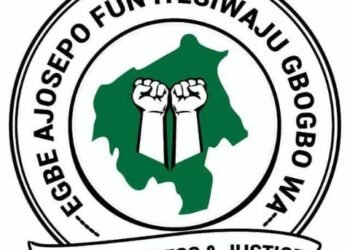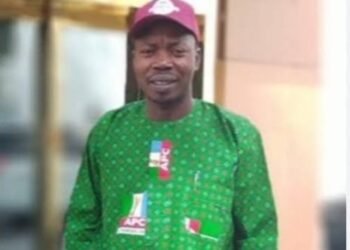Restructuring: Southern Governors Call For National Dialogue
Governors from the southern part of the country have collectively called on the Federal Government to convoke a national dialogue and take urgent steps to restructure the country.
The governors expressed grave concern on the security challenge currently plaguing the nation and strongly urged President Muhammad Buhari to address Nigerians on the challenges of insecurity and restore the confidence of the people.
The southern governors made the call following a meeting held met in Asaba, Delta State, today, to deliberate on the current security situation, increasing agitations and clamour for restructuring of the country.
Chairman of Governors of Southern Nigeria and governor of Ondo State, Arakunrin Oluwarotimi Akeredolu, who read the communique issued after the meeting which held at the Government House, Asaba, said the country is long overdue for restructuring.
Akeredolu said the governors resolved that urgent and bold steps be taken to restructure the country to pave way for the evolution of state police; review of revenue allocation formula in favour of the states.
He also said the governors asked for the creation of other institutions which legitimately advance the country’s commitment to and practice of true federalism.
“In view of widespread agitations among our various peoples for greater inclusiveness in existing governance arrangements, the Federal Government should convoke a national dialogue as a matter of urgency,” he said.
The southern governors recommended that, in deference to the sensitivities of the various peoples of the country, there is need to review appointments into Federal Government agencies, including security agencies, to reflect Federal Character as Nigeria’s overall population is heterogenous.
He declared that the governors affirmed that the peoples of Southern Nigeria remain committed to the unity of Nigeria on the basis of justice, fairness, equity, oneness and peaceful co-existence between and among its peoples with a focus on the attainment of shared goals for economic development and prosperity.
The southern governors, however, observed that the incursion of armed herders, criminals and bandits into the southern part of the country has presented a severe security challenge.
They said citizens are not able to live their normal lives, including pursuing various productive activities, leading to a threat to food supply and general security.
Consequently, the meeting resolved that open grazing of cattle be banned across the states in the southern parts of the country.
They noted that development and population growth has put pressure on available land and increased the prospects of conflict between migrating herders and local populations in the South.
“Given this scenario, it becomes imperative to enforce the ban on open grazing in the South, including cattle movement to the South by foot; recommended that the Federal Government should support willing states to develop alternative and modern livestock management systems,” Akeredolu added.
The Ondo State governor explained that his colleagues expressed concern on the continued gridlock on the Oshodi-Apapa Expressway and the chokehold it has exerted on the nation’s economy, being the sole outlet from Apapa Wharf.
The governors recommended the activation and establishment of ports in other states of the federation to create new jobs and promote socio-economic activities in the country.
“The meeting expressed concern on the economic implications of another lockdown on the country, and therefore suggested greater coordination and cooperation between federal and state hovernments in evolving strategies for dealing with the pandemic,” Akeredolu said.
Present at the meeting were Governors Nyesom Wike (Rivers); Ifeanyi Okowa (Delta); Okezie Ikpeazu (Abia); Emmanuel Udom (Akwa Ibom); Willie Obiano (Anambra): Dapo Abiodun (Ogun); Adegboyega Oyetola (Osun) and Seyi Makinde (Oyo).
Other governor present included Diri Duoye, (Bayelsa); Ben Ayade (Cross Rivers); Dave Umahi (Ebonyi); Godwin Obaseki (Edo); Kayode Fayemi (Ekiti); Ifeanyi Ugwuanyi (Enugu); Hope Uzodimma (Imo) and Babajide Sanwo-Olu (Lagos).

